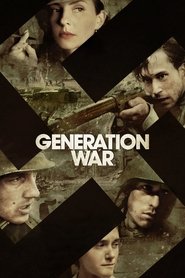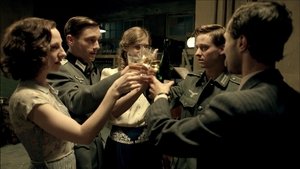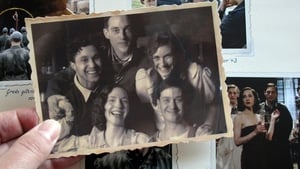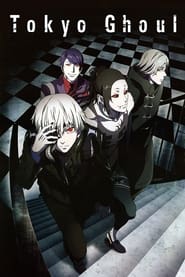
Seasons and episodes
1Season 1 Mar. 17, 2013
 1 - 1A Different Time Mar. 12, 2025
1 - 1A Different Time Mar. 12, 2025 1 - 2A Different War Mar. 12, 2025
1 - 2A Different War Mar. 12, 2025 1 - 3A Different Country Mar. 12, 2025
1 - 3A Different Country Mar. 12, 2025
Creator
Creator
Cast
Wilhelm Winter
Friedhelm Winter
Greta Müller
Viktor Goldstein
Charlotte
Sturmbannführer Dorn
Hildegard
Dr. Jahn
Head Nurse Brigitte
Standartenführer Hiemer
Video trailer
Synopsis
Generation War Season 1 Download In English 720p
StoryLine:
Shortly before the German invasion of the Soviet Union, five close friends have a party at a pub in Berlin. Wilhelm is an officer in the military, his brother Friedhelm an enlisted man. Viktor is a Jew whose father owns a tailor shop. Charlotte has just passed her examination to become a military nurse. Greta is a beautiful bartender who hopes to become a singer. The friends are hopeful that they will meet again by Christmas.Generation War Season 1 Download
Wilhelm and Friedhelm witness some early victories as the German army advances toward Moscow. Charlotte gets used to seeing blood as she works in a military hospital near the front-line. Greta sleeps with a major in the Gestapo to advance her career as a singer. She thinks she has used her relationship to obtain documents for Viktor to flee to New York City, but Viktor is arrested by the Gestapo and is put on a train to a concentration camp.
Generation War (German: Unsere Mütter, unsere Väter, translated as “Our Mothers, our Fathers”) is a German World War II TV miniseries in three parts. It was commissioned by public broadcasting organization ZDF, produced by the UFA subsidiary TeamWorx, and first aired in Germany and Austria in March 2013. The series tells the story of five German friends, aged around 20, on their different paths through Nazi Germany and World War II: as Wehrmacht soldiers on the Eastern Front, a war nurse, an aspiring singer, and a Jewish tailor. The narrative spans four years, starting in 1941 Berlin, when the friends meet up for a last time before embarking on their journeys, enthusiastically vowing to meet up again the following Christmas. The story’s conclusion is set shortly after the end of the war in 1945.When the series first aired in Germany, each episode garnered around 7 million viewers. Generation War has generated much controversy. The Economist stated that hardly any German TV drama ever caused so much public debate.[1] Critics have acknowledged the film to be well crafted, intense and unsparing in its depiction of combat on the eastern front.[2] However, aspects such as the portrayal of the Polish resistance movement as anti-semites, the scant depiction of Nazi Germany’s objective to purge the Reich of Jews,[3] and the blurring of differences between non-German victims and German perpetrators have been deplored by others
Additional Links:
Original title
Unsere Mütter, unsere Väter
TMDb Rating
8 260 votes
First air date
Mar. 17, 2013
Last air date
Mar. 20, 2013
Seasons
1
Episodes
3
Average Duration
90 minutes

























![Lost Girl [Complete]](https://image.tmdb.org/t/p/w185/jE6sqorxIyVU55VhDbz7NbqxZlV.jpg)

